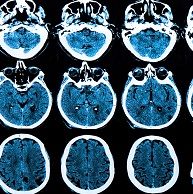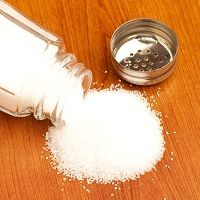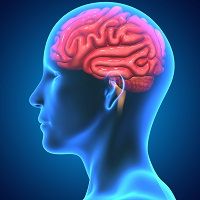Article
What We Learned About Multiple Sclerosis in 2015
Author(s):
Although multiple sclerosis is an incurable disease, progress in pathology and treatment over the past year have helped to one day make a cure a reality.

Although multiple sclerosis is an incurable disease, progress in pathology and treatment over the past year have helped to one day make a cure a reality.
It’s been a big year for multiple sclerosis research. Between factors that influence onset to results from phase III trials analyzing medications, researchers have been hard at work finding answers.
Read on to catch up on 14 of the key multiple sclerosis findings in 2015, and stay up-to-date with the MD Magazine multiple sclerosis condition center.

Race and vitamin D levels may play a crucial role in the risk of multiple sclerosis, according to a study presented at the 31st Congress of the European Committee for Treatment and Research in Multiple Sclerosis (ECTRIMS 2015) in Barcelona, Spain.

Researchers from University of Vermont designed a diet in three genetically different groups of mice in order to demonstrate that high levels of dietary sodium exacerbate the onset of multiple sclerosis in female animal models.

There are many factors that patients diagnosed with multiple sclerosis need to consider when managing their condition. Deborah Miller, PhD, from the Cleveland Clinic discussed a new tool to gauge this area of treatment during the annual ECTRIMS congress in Barcelona.

It’s not uncommon for patients with multiple sclerosis to experience a reduction in brain volume. However, a treatment with alemtuzumab can slow the process, according to a multi-continental team of investigators.

Exercising may reduce disease activity for pediatric patients with multiple sclerosis, according to the results of a study published in Neurology.

Vitamin D levels in patients’ teenage years may push off multiple sclerosis onset into later in life, according to findings published in Neurology.

A pair of phase III studies revealed positive efficacy and safety outcomes for ocrelizumab, and this could be a game-changer for patients with multiple sclerosis.

The MD Magazine Peer Exchange “Modifying the Course of Multiple Sclerosis in New Ways: The Latest Advances in Treatment” features a distinguished panel of physician experts discussing key topics in multiple sclerosis (MS) research and management, including the latest insights into MS pathophysiology, new medication options and their application in clinical practice, and more.

Women are more likely to develop autoimmune diseases like multiple sclerosis, and a lab accident has come closer to determining the reasoning behind this.

The Food and Drug Administration (FDA) has issued a warning regarding a serious side effect associated with a drug used to treat multiple sclerosis.

Pain is prevalent in 63% of patients with multiple sclerosis, according to a recent study, and psychosocial factors may be key contributors to the severity of that pain.

Oral feeding of cinnamon is capable of suppressing multiple sclerosis in mice models, according to research published in PLOS One.

Magnetic resonance imaging (MRI) can be used to identify lesions in the central nervous system in patients with multiple sclerosis (MS), but not all patients with active disease have identifiable lesions, and researchers are mixed over the extent to which lesions can be used as a marker for MS disease activity.
Continue reading to see why some researchers say ‘yes’ and others say ‘no’ to MRI lesions.

As if there aren’t enough reasons to stop smoking, a study has revealed smoking also increases the risk of multiple sclerosis.




